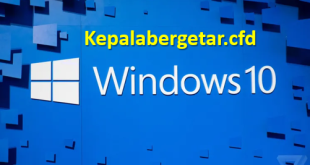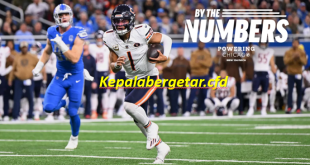Google insists that the billions of dollars in revenue-sharing payments it makes to smartphone makers and wireless service providers ensure those companies innovate and support the Android software ecosystem, helping it better compete against the Apple Inc’s iPhone, according to a company executive.
Competition between Alphabet Inc’s Google and Apple is “as intense as it gets,” Jamie Rosenberg said, testifying in the search giant’s defense on Nov. 8 during the U.S. Department of Justice antitrust trial in Washington. Rosenberg, now a part-time employee at the search giant, joined the company in 2010 to focus on Android and the Google Play app store.
By sharing search revenue with smartphone makers like Samsung Electronics Co and wireless carriers like Verizon Communications Inc, Rosenberg said, Google ensures those companies have resources to promote new Android products and help maintain them by continuing to offer security updates. , For example.
“We want our partners to have aligned incentives,” he said, adding that revenue sharing is a “reinforcing mechanism” for that.
The Justice Department sued Google for antitrust violations, alleging that the billions of dollars Google pays Apple, Samsung and others to be the default search engine on mobile phones and PCs has prevented its rivals from competing. In exchange for default placement, Google pays companies a portion of the search advertising revenue it earns.
Lawyers for the U.S. Department of Justice attempted to undermine Rosenberg’s testimony on Wednesday, arguing that Google could support its Android smartphone operating system with money derived from the Google Play store. In 2021, the Google Play store made more than $12 billion in operating profits and had a profit margin of nearly 71%, according to lawyers for Epic Games Inc, which is suing Google for antitrust violations related to the store. Of applications. .
To be able to put Google apps on devices, manufacturers must sign a mobile application distribution agreement, often called a MADA, Rosenberg said. That deal requires a company to preload a suite of 11 Google apps on the device, including Search, Chrome and Play, he said, but they don’t have to be the default options.
Smartphone makers and wireless service providers can separately sign a revenue-sharing agreement to set Google search and the Chrome web browser as defaults. These deals motivate other companies to make or sell more Android devices, Rosenberg said. Google paid $26 billion in 2021 in revenue-sharing deals, an executive testified earlier in the trial.
In response to questions from Justice Department attorney Meagan Bellshaw, Rosenberg acknowledged that Google doesn’t put any conditions on what wireless service providers or smartphone makers do with revenue-sharing money.
“We don’t require them to share with us how they are using the funds,” she said.
Google’s Play Store, where the company takes between 15% and 30% of purchases, is also “a major source of revenue,” Rosenberg said.
Rosenberg rejected the idea that the company could use Google Play revenue alone to fund the Android ecosystem.
“We have a commercial interest in Android succeeding thanks to Play. The assumption that we would see the same success in Play if we weren’t doing a good job in search, I don’t think you can necessarily make that connection,” she said.
Recent changes
More recently, Rosenberg said, Google has changed its strategy with U.S. wireless carriers, signing a pair of deals: one for revenue sharing and another that offers money to companies to incentivize them to sell more Android phones. Under that structure, the revenue share percentage is lower, but overall operators can make more money by helping sell more Android phones, he said.
“Frankly, we felt like we were doing our part more than they were,” she said of American wireless providers. Revenue sharing alone “did not motivate them.”
In 2020, Google also renegotiated its deal with Samsung, splitting the single revenue-sharing deal into three: one focused on search, another on services and a third on marketing, Rosenber said.
 Kepala Bergetar Kepala Bergetar Tonton Dfm2u Malaysian Dramas Dan Malay Filem Full Episod Online. Myinfotaip Kbergetar All Episod Terkini Telefilem.
Kepala Bergetar Kepala Bergetar Tonton Dfm2u Malaysian Dramas Dan Malay Filem Full Episod Online. Myinfotaip Kbergetar All Episod Terkini Telefilem.






